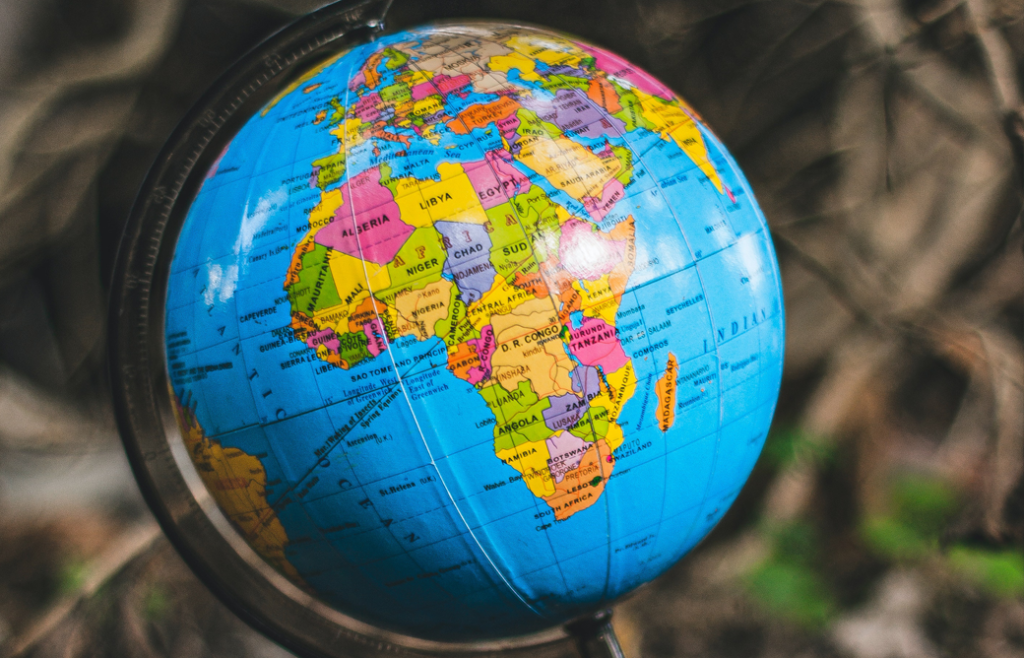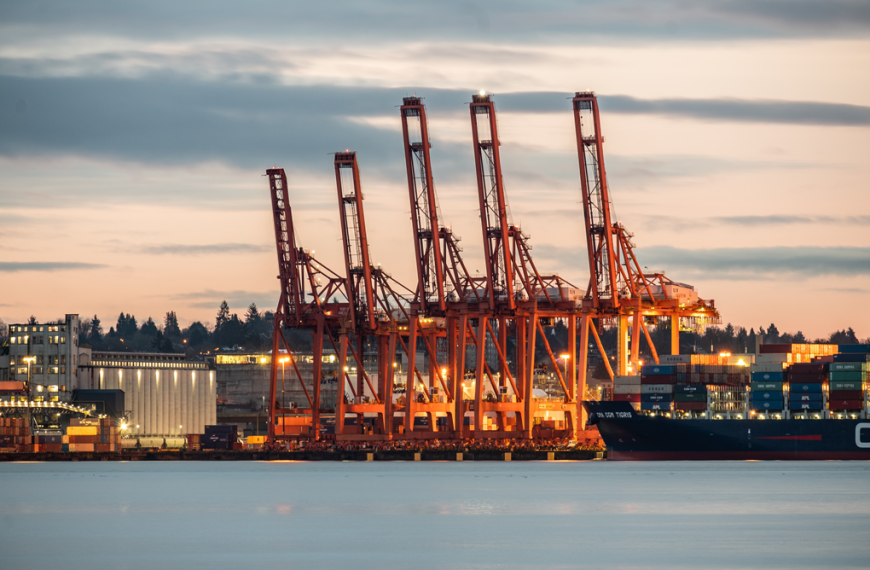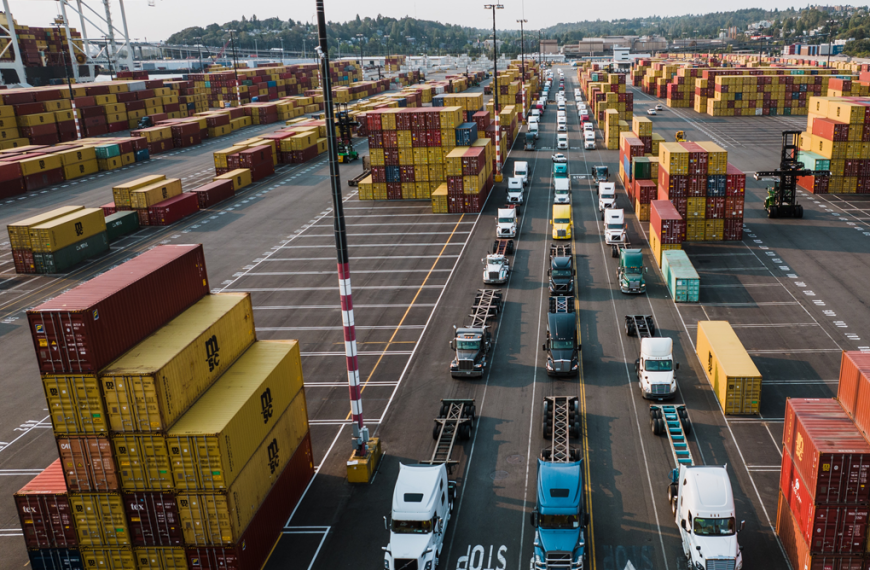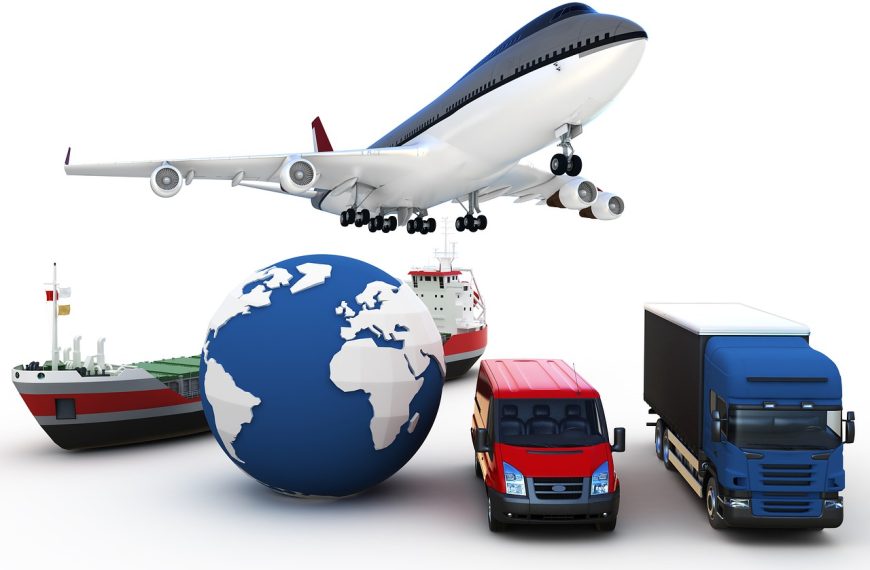Looking to export to Africa? Learn about the import market numbers of the top 10 African countries in our comprehensive guide.
Expanding your business to Africa can be a game-changer for your company, but navigating the export process can be overwhelming. In this post, we will explore the various ways to export to Africa, including sea freight, air freight, and logistics, and provide insights into what you need to know to succeed in this promising market.
- Import Market Numbers Of Top 10 African Countries
- Sea Freight
- Air Freight
- Logistics
- Top 10 Main Products To Export To Africa In Numbers
- 7 Opportunities For Export To Africa
- How To Export To African Countries
- 10 Challenges Facing The Export To Africa Market
- Related Articles
- How Afodel Can Help With Exports To Africa
- Frequently Asked Questions (FAQs)
- Related Articles
Import Market Numbers Of Top 10 African Countries
To understand the potential of exporting to Africa, let’s take a closer look at the import market numbers of the top 10 African countries:
- South Africa – $88.3 billion
- Egypt – $54.3 billion
- Nigeria – $42.2 billion
- Algeria – $36.7 billion
- Morocco – $30.6 billion
- Angola – $25.9 billion
- Tunisia – $19.1 billion
- Libya – $18.4 billion
- Sudan – $14.6 billion
- Ghana – $14.4 billion
| Country | Import Market Numbers | Description |
|---|---|---|
| South Africa | $88.3 billion | With the largest economy in Africa, South Africa is a top importer of goods such as crude oil, machinery, electronics, and vehicles. The country also has a well-developed logistics infrastructure with major ports, making it an attractive destination for exporters. |
| Egypt | $54.3 billion | Egypt is a major importer of petroleum products, wheat, corn, and machinery. The country’s strategic location as a gateway to Africa and the Middle East makes it an attractive market for exporters. The Egyptian government is also taking steps to improve the logistics infrastructure and simplify import regulations, making it easier to do business in the country. |
| Nigeria | $42.2 billion | Nigeria is the largest economy in West Africa, and its imports include refined petroleum, wheat, and pharmaceuticals. However, Nigeria’s import regulations can be complex and unpredictable, making it important for exporters to work with experienced logistics providers. |
| Algeria | $36.7 billion | Algeria is a major importer of machinery, transportation equipment, and food. The country has a growing economy, but its import regulations can be challenging for exporters. Working with experienced logistics providers and understanding the local business culture is important for success in the Algerian market. |
| Morocco | $30.6 billion | Morocco’s imports include crude petroleum, refined petroleum, and cars. The country has a well-developed logistics infrastructure, including several major ports, making it an attractive market for exporters. However, Morocco’s import regulations can be complex, so working with experienced logistics providers is crucial. |
| Angola | $25.9 billion | Angola is a major importer of machinery, vehicles, and food. The country has a developing economy, but its import regulations can be challenging for exporters. Working with experienced logistics providers and understanding the local business culture is important for success in the Angolan market. |
| Tunisia | $19.1 billion | Tunisia’s imports include refined petroleum, cars, and packaged medicaments. The country has a relatively small economy but is strategically located between Europe and Africa, making it an important gateway to the continent. Tunisia’s logistics infrastructure is well-developed, with several major ports, and the country is taking steps to simplify its import regulations. |
| Libya | $18.4 billion | Libya is a major importer of machinery, refined petroleum, and food. The country’s economy has been disrupted by political instability and conflict, but there are still opportunities for exporters in the country. Working with experienced logistics providers is important for navigating Libya’s complex import regulations and unstable security situation. |
| Sudan | $14.6 billion | Sudan’s imports include refined petroleum, wheat, and cars. The country has a developing economy, but its import regulations can be challenging for exporters. Working with experienced logistics providers and understanding the local business culture is important for success in the Sudanese market. |
| Ghana | $14.4 billion | Ghana is a major importer of refined petroleum, cars, and rice. The country has a growing economy and is strategically located on the west coast of Africa, making it an important gateway to the region. Ghana’s logistics infrastructure is improving, with major ports and highways being developed, but navigating its import regulations can still be challenging for exporters. |
These import market numbers reveal that there is a high demand for imported goods across the African continent. However, each country has its unique challenges when it comes to exporting.

Sea Freight
Sea freight is a popular choice for exporters to Africa, with many major ports across the continent. Shipping by sea is cost-effective for large volume shipments, but it can be slower and requires more paperwork and documentation.
When exporting by sea, it’s essential to work with a reliable shipping company that has experience in African markets. They can help you navigate the complex customs and import regulations and ensure that your goods arrive at their destination safely and on time.
Air Freight
Air freight is a popular method for goods that require quick delivery times. Shipping by air is faster than shipping by sea, making it an excellent option for perishable goods or time-sensitive products. However, air freight can be more expensive than sea freight, making it less cost-effective for larger shipments.
When shipping by air, it’s crucial to work with a reputable freight forwarder that can handle the logistics of getting your goods to their destination. They can help you choose the right carrier, arrange for customs clearance, and ensure that your goods are properly packed and labeled for air transport.
Logistics
Logistics is an essential part of exporting to Africa, regardless of the shipping method you choose. Exporters need to ensure that their goods comply with local regulations, are properly packaged and labeled, and are delivered to their destination on time. This can be a complex process, particularly when shipping to multiple countries with different import regulations.
Working with an experienced logistics provider can help you navigate these challenges and ensure that your goods arrive at their destination safely and on time. They can provide a range of services, from customs clearance to warehousing and distribution, to help you streamline your supply chain and reduce costs.
Top 10 Main Products To Export To Africa In Numbers
If you’re looking to export to Africa, it’s important to know which products are in high demand. Here are the top 10 products to consider, along with their export numbers to Africa:
| Product | Export Numbers to Africa (in billions) | Description |
|---|---|---|
| Crude Oil | $168.1 | Africa is a major importer of crude oil, with demand driven by the continent’s growing energy needs. |
| Refined Petroleum | $27.3 | Refined petroleum products are essential for powering Africa’s economies and transportation systems. |
| Cars | $6.8 | African consumers are increasingly seeking affordable, reliable vehicles for personal and commercial use. |
| Telephones | $4.9 | With over a billion people on the continent, there is a large demand for telecommunication equipment and services in Africa. |
| Wheat | $4.1 | A staple food crop, wheat is in high demand across the continent to feed growing populations. |
| Rice | $3.5 | Rice is also a staple food crop, with demand driven by population growth and changing dietary habits. |
| Petroleum Gas | $2.8 | Petroleum gas is an important source of energy for households and businesses across the continent. |
| Coal | $1.9 | Coal is used primarily for power generation and is in demand across Africa as the continent expands its energy infrastructure. |
| Gold | $1.6 | Africa is rich in mineral resources, with gold being one of the most sought-after commodities. |
| Diamonds | $1.4 | Diamonds are another valuable mineral resource found in Africa, with demand driven by the jewelry and luxury goods industries. |
Exporting these products to Africa requires efficient and reliable logistics solutions, such as sea freight and air freight, to ensure timely delivery and optimal supply chain management. By understanding the demand for these products and investing in effective logistics, businesses can tap into the opportunities offered by this rapidly growing market.
7 Opportunities For Export To Africa
Africa is a continent full of opportunities for export, with a growing demand for various products and services.
Exporting to Africa can be a profitable business venture for those looking to expand their market. With a population of over 1.3 billion, Africa has a growing demand for various products, including technology, agricultural goods, and consumer products. The continent is also rich in natural resources, creating opportunities for those in the mining and energy industries.
Here are 7 opportunities for export to Africa:
- Technology: Africa is experiencing a technological boom, with a growing demand for smartphones, laptops, and other tech products.
- Agricultural goods: With a large agricultural sector, there is a high demand for products such as coffee, tea, cocoa, and fresh produce.
- Consumer products: As the middle class in Africa grows, there is an increasing demand for consumer products such as clothing, cosmetics, and household appliances.
- Mining: Africa is rich in natural resources, creating opportunities for those in the mining and energy industries.
- Healthcare: With a growing population, there is a need for medical equipment and supplies.
- Education: The demand for quality education is high in Africa, creating opportunities for those in the education sector.
- Infrastructure: Africa’s infrastructure is in need of development, creating opportunities for those in the construction and logistics industries to provide services such as sea freight, air freight, and logistics.
By taking advantage of these opportunities, businesses can expand their market and maximize profits while contributing to the economic growth of Africa.

How To Export To African Countries
Exporting to African countries can be a daunting task, especially for new exporters. However, with the right knowledge and resources, it can be a profitable venture. The following are steps to follow when exporting to African countries:
- Conduct market research
- Determine the best market entry strategy
- Obtain necessary documentation and licenses
- Choose a reliable logistics provider for sea freight or air freight
- Understand cultural and legal differences
- Establish relationships with local partners and stakeholders
- Continuously monitor and adjust your strategy
By following these steps, exporters can successfully navigate the African market and tap into its vast potential. With the help of experienced logistics providers, such as those specializing in sea freight, air freight, and logistics, the exporting process can be even smoother.
10 Challenges Facing The Export To Africa Market
| Challenge | Brief Description |
|---|---|
| Lack of Infrastructure | Poor infrastructure, including roads, ports, and airports, can cause delays in transportation and add extra costs to exports. |
| Political Instability | Instability and conflicts in some African countries can make it difficult to establish and maintain business relationships. |
| Complex Regulations | The complex regulations and bureaucratic processes in many African countries can create barriers for exporters. |
| Corruption | Corruption is a major issue in some African countries and can increase the costs of doing business. |
| Currency Fluctuations | Currency fluctuations can make pricing and profit margins unpredictable and increase financial risks for exporters. |
| Limited Payment Options | Limited payment options in some African countries can create difficulties for exporters seeking to get paid for their products. |
| Language Barriers | Language barriers can make it difficult to communicate effectively with potential customers and business partners. |
| Cultural Differences | Different cultural norms and business practices can create misunderstandings and hinder successful export operations. |
| High Tariffs and Taxes | High tariffs and taxes can make exported products more expensive and less competitive in African markets. |
| Security Concerns | Security concerns, including piracy, theft, and terrorism, can pose risks to goods in transit and hinder export operations. |
Dealing with these challenges requires careful planning and execution, as well as a thorough understanding of the target markets and their unique characteristics. Effective logistics, including sea freight and air freight, is crucial in overcoming many of these challenges and ensuring successful export operations.
Related Articles
How Afodel Can Help With Exports To Africa
Are you looking to expand your business to Africa but are unsure about how to navigate the complex logistics of exporting to the continent? Look no further than Afodel!
At Afodel, we specialize in providing reliable and cost-effective sea freight and air freight services to Africa. Our logistics experts have extensive experience in handling exports to various African countries, and we pride ourselves on our ability to offer customized solutions that meet the unique needs of each of our clients.
Whether you need help with documentation, customs clearance, or transportation, we’ve got you covered. Our goal is to make the exporting process as smooth and hassle-free as possible, allowing you to focus on growing your business.
So why choose Afodel for your exports to Africa? We offer competitive rates, fast and efficient service, and a commitment to quality that is unmatched in the industry. Contact us today to learn more about how we can help you export to Africa with ease.
Frequently Asked Questions (FAQs)
What does Africa import the most?
Africa imports a wide range of products including machinery, vehicles, electronics, pharmaceuticals, and food. However, petroleum and petroleum products remain the most imported products in Africa, accounting for a significant percentage of the continent’s total imports. Other major imports include food and beverage products, vehicles, machinery, and electronics.
What are 2 major exports in Africa?
Africa is rich in natural resources, and two major exports from the continent include oil and minerals. Africa is one of the world’s largest oil-producing regions, and crude oil accounts for a significant percentage of the continent’s total exports. In addition to oil, Africa is also a major exporter of minerals such as gold, diamonds, copper, and platinum. Agriculture is another significant export sector, with products like cocoa, coffee, and tea being major exports from the continent.
What is Africa a huge exporter of?
Africa is a huge exporter of natural resources, including oil, gas, minerals, and agricultural products. The continent is one of the world’s largest producers of oil and minerals, and exports these products to countries around the world. In addition, Africa is a significant exporter of agricultural products, including coffee, cocoa, tea, fruits, and vegetables. The continent’s growing population and expanding middle class are creating new opportunities for the export of consumer goods and services.
What is the most valuable export in Africa?
The most valuable export in Africa varies from country to country, but in general, oil is the most valuable export from the continent. Many African countries are major oil producers and exporters, and oil accounts for a significant percentage of the continent’s total exports. However, other valuable exports include minerals such as diamonds, gold, and copper, as well as agricultural products like cocoa, coffee, and tea. The value of African exports is expected to grow in the coming years as the continent continues to develop and diversify its economies.













